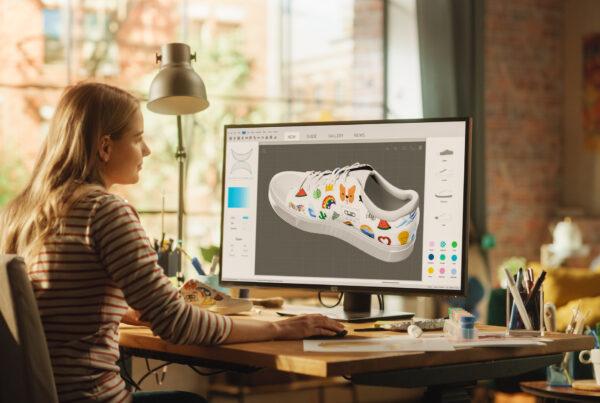Nowadays, with everything online, it is nearly impossible to have a business without having a website. While there are online tools that allow people to create their own websites from templates, web design graduates can bring technical skill and creative vision to a project. People often gravitate towards a more personalized experience and, as a web designer, that is precisely what you can offer to your clients. Being well versed in web design can allow you to offer a variety of digital services to clients across different industries. Aside from bringing your technical expertise to the table, here are three qualities that every web designer should have.
Communication Skills are Key for a Web Design Career
Having great communication skills can help you succeed after graduation. Of course, like many jobs, you may have to work with clients as well as different people during the production stage. Being able to communicate clearly will help each and every step of the design process run smoothly. Your written communication should be as clear as your oral communication. This includes emails, data entry, summaries, written proposals and pitches.
Listening is another essential part of working with clients. It is important to be able to listen actively and pay close attention to details. This will be useful when receiving briefs from clients for new web projects and help you to deliver a more tailored service.
Being able to liaise with clients and offer alternative solutions is very important in a web design career. Through courses such as HTML and CSS for web publishing, you’ll gain experience with different softwares and their relevant applications. Often, you’ll need to use this knowledge to advise your client on the best approach to improve the success of their website.

Clear communication skills are essential for web design graduates.
Adapting to Change
The web is constantly changing. Being proactive when it comes to learning and keeping up to date with the latest digital trends is crucial. Attending seminars or doing online training is a good way to continuously build your repertoire of knowledge.
Working with code can also require flexibility. There will be times when you’ll encounter an error or obstacle while using a programming language. In that case, developing a solution-oriented mindset can make the difference between a good web designer and a great one.
Considering a career change?
Train online or on-campus for a job that pays more and means more.
The ability to adapt can also be useful when working for a client that already has a complete website. Having to integrate your designs into an existing project can be tough but, with the knowledge you’ll gain through courses such as Dynamic Web Development with PHP in web design college, you’ll learn to navigate and improve upon a website.
A Portfolio Will Show Your Experience
Employers want to know that they are hiring the best person for the project. The moment when you hand over your portfolio, is the moment when you demonstrate your expertise in the field. Through your portfolio, you’ll be able to articulate your experience using different softwares common to the industry, such as Adobe Illustrator and Deamweaver. You may also want to include a broad range of projects across different sectors that you’ve worked for. That being said, if you don’t have much professional experience, you can always make a portfolio of the work you’ve completed through web design courses.
A portfolio can also facilitate the early stages of collaboration with a client. At times, it can be tough to get a clear idea of exactly what a client wants from a project. By offering them a portfolio, the client can point to concrete examples of the direction they want to take. With a clear and organized portfolio, you can not only pitch yourself to the client but you can help them to arrive at a vision for their project.






